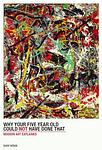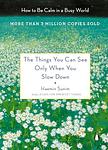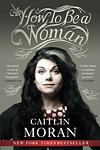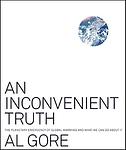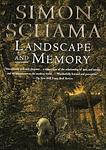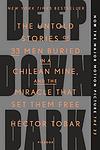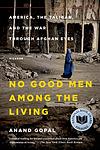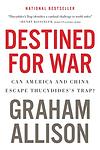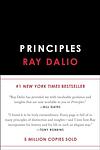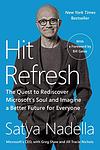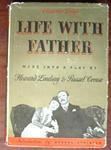The Greatest "Nonfiction" Books of All Time
Click to learn how this list is calculated.
This list represents a comprehensive and trusted collection of the greatest books. Developed through a specialized algorithm, it brings together 300 'best of' book lists to form a definitive guide to the world's most acclaimed books. For those interested in how these books are chosen, additional details can be found on the rankings page.
Genres
Countries
Date Range
Reading Statistics
Click the button below to see how many of these books you've read!
Download
If you're interested in downloading this list as a CSV file for use in a spreadsheet application, you can easily do so by clicking the button below. Please note that to ensure a manageable file size and faster download, the CSV will include details for only the first 500 books.
Download-
2776. Autobiography Of A Face by Lucy Grealy
"Autobiography of a Face" is a profound and poignant memoir that chronicles the author's battle with Ewing's sarcoma, a rare form of cancer that she was diagnosed with at the age of nine. The disease led to several years of harsh chemotherapy and radiation treatments, as well as a series of surgeries that ultimately resulted in the partial removal of her jaw. The memoir delves deeply into the author's struggles with her physical appearance and self-identity, as she faces social isolation and bullying. Through her journey, she explores themes of resilience, beauty, and the quest for self-acceptance, offering a raw and insightful look into the impacts of illness and disfigurement on one's life.
-
2777. Darwin's Dreampond by Tijs Goldschmidt
The book explores the dramatic impact of human intervention on the ecosystems of Lake Victoria, focusing particularly on the cichlid fish species. The author, an evolutionary biologist, recounts his fieldwork in the 1980s, observing firsthand the ecological and evolutionary changes resulting from the introduction of the Nile perch, a predatory fish. This event led to the extinction of numerous cichlid species, which had been remarkably diverse and a key example of adaptive radiation. The narrative combines scientific observation with reflections on the broader implications of biodiversity loss and the complex relationship between humans and the natural world.
-
2778. Beast And Man by Mary Midgley
"Beast and Man" explores the blurred lines between animalistic instincts and human behavior, challenging the notion that humans are fundamentally distinct from other animals. The book delves into philosophical, psychological, and biological perspectives to argue that human nature is deeply intertwined with our animal origins. By examining traits such as aggression, cooperation, and morality, the author argues that understanding our animalistic impulses is crucial for addressing complex ethical and social issues. The work encourages a more integrated view of human identity, emphasizing that acknowledging our animal nature can lead to a more complete understanding of ourselves and enhance our ethical engagements with the world.
-
2779. Why Your Five Year Old Could Not Have Done That by Susie Hodge
This book offers a compelling defense of modern art, challenging the common criticism that abstract and contemporary works are so simplistic that a child could have created them. Through an exploration of various modern masterpieces, the author demystifies the techniques, visions, and innovations behind such creations, providing insights into the complexity and depth of thought that these works embody. The book serves as an educational guide, enlightening readers about the artistic value and significance of modern art, and dispelling the notion that its simplicity undermines its legitimacy as a form of skilled and meaningful expression.
-
2780. The Things You Can See Only When You Slow Down by Haemin Sunim
This book is a contemplative guide that explores the importance of slowing down in our fast-paced world to discover peace, tranquility, and happiness. Written by a renowned meditation teacher, it offers practical advice and insights drawn from the author's life experiences and spiritual teachings. Through a series of short, accessible chapters, the book addresses various aspects of modern life, such as love, relationships, work, and self-care, encouraging readers to pause, breathe, and reflect on their inner lives. It combines mindfulness and Zen Buddhist principles to help readers cultivate a more mindful and compassionate approach to their daily lives, emphasizing the profound wisdom that becomes visible only when we take the time to slow down.
-
2781. Stay True by Hua Hsu
"Stay True" by Hua Hsu is a collection of essays that explore the intersections of race, culture, and identity in America. Through personal anecdotes and cultural analysis, Hsu examines the ways in which popular culture and media shape our understanding of race and identity, and how individuals navigate these complex and often contradictory narratives. From the rise of Asian American representation in Hollywood to the legacy of Michael Jackson, "Stay True" offers a nuanced and thought-provoking exploration of the cultural landscape of America.
-
2782. How To Be A Woman by Caitlin Moran
The book is a humorous yet insightful memoir and feminist manifesto that combines personal anecdotes with broader socio-political commentary. The author navigates through various stages of womanhood, from adolescence to middle age, tackling subjects such as body image, workplace inequality, love, and motherhood. By sharing her own experiences and challenges, she invites readers to consider the complexities of being a woman in the modern world, advocating for a more inclusive and liberated approach to feminism that encourages women to embrace their identities and fight for equality.
-
2783. An Inconvenient Truth: The Planetary Emergency of Global Warming and What We Can Do About It by Al Gore
This book is a comprehensive guide to understanding the global climate crisis and the steps that can be taken to combat it. The author, a former Vice President and environmental activist, presents scientific evidence of global warming, its causes, and its potential effects, including rising temperatures, melting ice caps, and extreme weather events. The book also provides practical solutions to the problem, such as reducing carbon emissions, increasing renewable energy use, and promoting sustainable practices. The author's aim is to educate readers about the urgency of the issue and inspire them to take action.
-
2784. La Grotte Chauvet À Vallon Pont D'arc by Jean-Marie Chauvet
The book provides an in-depth exploration of the Chauvet Cave, discovered in 1994 in the Ardèche region of southern France, which houses some of the oldest known prehistoric cave paintings. It details the discovery and significance of the cave's artwork, which dates back approximately 32,000 years, offering insights into the lives and environments of early human societies. The author, a key figure in the cave's discovery, combines scientific analysis with vivid photographic documentation to present a comprehensive study of the cave's intricate depictions of ancient animals and human figures, emphasizing the artistic sophistication and cultural complexities of our Paleolithic ancestors.
-
2785. How To Tell When You're Tired by Reg Theriault
"How to Tell When You're Tired" is a reflective exploration of the physical and psychological impacts of manual labor on workers. Drawing from the author's extensive personal experience in the field, the book delves into the often overlooked aspects of blue-collar work, such as the toll it takes on one's body and mind, and the culture and camaraderie among workers. It provides a candid look at the hardships faced by laborers, offering insights into how they manage the relentless demands of their jobs, the signs of fatigue they learn to recognize, and the coping mechanisms they develop. This work serves as both a tribute to the resilience of manual workers and a critical commentary on the need for greater understanding and respect for their contributions to society.
-
2786. Landscape And Memory by Simon Schama
"Landscape and Memory" is a profound exploration of how landscapes have shaped human culture and how human culture, in turn, shapes our views of nature and the environment. The book delves into the symbolic and mythological significance of different natural elements such as forests, rivers, and mountains across various cultures and historical periods. Through a rich tapestry of narratives, art, and personal reflection, the author argues that our perceptions of nature are deeply intertwined with cultural memories and the collective imagination, revealing how these landscapes are not just physical settings but also landscapes of the mind, imbued with historical and emotional resonance.
-
2787. The Object Of Morality by G. J. Warnock
"The Object of Morality" explores the nature and foundation of moral judgments, examining whether morality is based on subjective preferences or objective truths. The author delves into the language of moral discourse, the role of intentions and consequences in ethical decision-making, and the societal and personal factors influencing moral behavior. Through a philosophical lens, the book critically assesses various ethical theories and seeks to clarify what truly constitutes the 'object' or core concern of moral considerations, aiming to provide a clearer understanding of what it means to live a morally good life.
-
2788. Deep Down Dark by Héctor Tobar
"Deep Down Dark" recounts the harrowing ordeal of 33 Chilean miners who were trapped deep beneath the Earth's surface for 69 days following a catastrophic collapse of the San José mine in 2010. The narrative delves into the psychological, emotional, and physical challenges faced by the miners as they struggled to survive in a dark, confined space, with limited food, water, and oxygen. The book also explores the global media frenzy surrounding the disaster and the miners' eventual dramatic rescue, highlighting the resilience of the human spirit and the power of collective hope and perseverance in the face of overwhelming adversity.
-
2789. No Good Men Among The Living by Anand Gopal
The book provides a gripping and detailed account of the Afghan War through the eyes of three individuals: a Taliban commander, a warlord, and a housewife. By tracing their intertwined lives, the narrative reveals the profound misunderstandings and often tragic consequences of the U.S. involvement in Afghanistan. The author, through extensive on-the-ground reporting, uncovers how initial American successes were squandered, leading to the resurgence of the Taliban and a perpetuation of conflict. The work challenges the conventional narratives of the war and exposes the impact of foreign intervention on ordinary Afghan lives.
-
2790. Destined For War by Graham Allison
This book examines the looming possibility of conflict between the United States and China through the lens of the "Thucydides's Trap," a term coined by the author to describe the inevitable tensions and potential wars that occur when a rising power threatens to displace an existing great power. Drawing from historical examples, the book explores how this dynamic has led to war in 12 out of 16 past cases and delves into the specific challenges and strategic decisions facing both the U.S. and China. It offers a detailed analysis of the military, economic, and political factors at play, while also proposing paths to avoid conflict and maintain global stability. Through a blend of historical insight and contemporary analysis, the book presents a compelling case for the two powers to navigate this dangerous period with caution and strategic foresight.
-
2791. Principles by Ray Dalio
This book offers a deep dive into the core principles that the author, a successful investor and entrepreneur, has developed over his career to create unique results in both life and business. It is divided into two parts: the first explores the importance of having a clear set of principles to guide decision-making processes, while the second part focuses on the practical application of these principles in the realms of economics, investing, and management. The author emphasizes the value of radical transparency and open-mindedness as key strategies for achieving success. Through sharing his personal journey and the lessons he has learned, the book aims to provide readers with a framework for making better decisions, understanding and managing risks, and achieving their goals.
-
2792. Behave by Robert Sapolsky
This book delves into the complex world of human behavior, exploring the intricate interplay of biology, psychology, and environment in shaping our actions. The author, a renowned neurobiologist and primatologist, takes readers on a journey from the neurochemical level, explaining how hormones and brain structure influence behavior, to the broader societal and evolutionary contexts that mold our actions. Through a multidisciplinary approach, the book examines why we behave the way we do, from acts of kindness to aggression, providing a comprehensive overview of the factors that drive human behavior.
-
2793. Capitalism Without Capital by Jonathan Haskel
This book delves into the modern economic shift towards an intangible asset-driven economy, distinguishing it from traditional, tangible asset-based systems. It explores how investments in intangible assets like design, branding, R&D, and software are overtaking physical assets in importance, fundamentally altering the landscape of business and economy. The authors analyze the unique challenges and opportunities this shift presents, including issues of economic measurement, policy-making, and the distribution of wealth. Through a comprehensive examination, the book provides insights into how the rise of intangible assets is reshaping capitalism, influencing everything from how companies operate to how economies are managed and grow.
-
2794. Measure What Matters by John Doerr
This book introduces the concept of Objectives and Key Results (OKRs), a goal-setting framework that has been instrumental in driving the success of high-profile technology companies and organizations. Through a series of case studies and personal insights, the text explores how setting clear, ambitious goals and aligning them with measurable outcomes can empower teams, foster innovation, and enable companies to achieve their most audacious objectives. The author, a renowned venture capitalist, shares his extensive experience and the lessons learned from industry leaders, providing readers with a practical guide to implementing OKRs in their own organizations to drive growth and operational excellence.
-
2795. Why We Sleep by Matthew Walker
This book delves into the critical importance of sleep, exploring its profound impact on our health, brain function, and overall well-being. The author, a renowned sleep scientist, combines decades of research and clinical practice to debunk common myths about sleep and highlight how modern life disrupts our natural sleep patterns. Through a blend of scientific insights and practical advice, the book emphasizes the role of sleep in enhancing memory, mood, and energy levels, while also detailing the dire consequences of sleep deprivation on our physical and mental health. It serves as a comprehensive guide on how to improve sleep quality and, by extension, live a healthier, more fulfilling life.
-
2796. Life 3.0 by Max Tegmark
This book explores the future of artificial intelligence (AI) and its impact on the fabric of human existence, proposing a framework for understanding the progression of life through the lens of technological evolution. It delves into the potential scenarios that could unfold as AI surpasses human intelligence, raising profound questions about consciousness, the role of humans in a world shared with advanced AI, and how society can navigate the ethical, political, and existential challenges this new era presents. The author encourages a proactive approach to designing and governing AI technologies, emphasizing the importance of aligning them with human values and interests to ensure a future where humanity can thrive alongside increasingly intelligent machines.
-
2797. Leonardo Da Vinci by Walter Isaacson
This biography delves into the life of one of history's most fascinating figures, a man whose curiosity and unparalleled genius spanned across various fields such as art, science, engineering, and anatomy. Through a meticulous examination of thousands of pages from his notebooks and the exploration of his famous artworks, the book paints a vivid picture of Leonardo da Vinci's relentless pursuit of knowledge and his extraordinary ability to observe the world in ways no one else did. The narrative not only celebrates his well-known masterpieces but also highlights his countless uncompleted projects and his unique approach to merging science and art, revealing the complexities and contradictions of a man who sought to understand the universe in all its facets.
-
2798. Energy And Civilization by Vaclav Smil
This book provides a comprehensive examination of the role that energy has played in the development of human societies, from the harnessing of fire by early humans to the complex energy grids of the 21st century. It explores how the transformation and consumption of energy have been pivotal in the advancement of civilizations, underpinning economic systems, technological progress, and the rise and fall of empires. The author meticulously analyzes the transition from muscle power to fossil fuels and renewable energy sources, highlighting the environmental and societal impacts of our growing energy demands. Through a detailed historical and scientific lens, the narrative underscores the critical importance of energy management in addressing current global challenges, advocating for a more sustainable and efficient future.
-
2799. Hit Refresh by Satya Nadella
This book provides an insightful look into the transformative journey of a global technology company under the leadership of its CEO, who took the helm with the vision of reinvigorating its culture and innovation. It delves into the personal and professional ethos of the CEO, emphasizing empathy, collaboration, and the pursuit of cutting-edge technology to solve some of the world's most challenging problems. Through a narrative that intertwines the executive's personal experiences with his professional endeavors, the book explores the importance of leadership that is adaptable, forward-thinking, and grounded in a deep understanding of human values, aiming to inspire current and future leaders to 'hit refresh' on their organizations and themselves.
-
2800. Life With Father by Howard Lindsay, Russell Crouse
"Life With Father" is a humorous and affectionate recounting of a family's daily life in late 19th-century America, centered around the domineering yet endearing figure of the father. The story unfolds through a series of vignettes that capture the trials and tribulations of managing a household with a strict, blustering patriarch, his resourceful wife, and their lively brood of sons. The narrative, rich with period detail and wry observations, highlights the clash between the father's traditional values and the inevitable changes brought about by time, as well as the love and warmth that underpin the family's interactions, despite the frequent comedic misunderstandings and the father's attempts to maintain absolute authority.
Reading Statistics
Click the button below to see how many of these books you've read!
Download
If you're interested in downloading this list as a CSV file for use in a spreadsheet application, you can easily do so by clicking the button below. Please note that to ensure a manageable file size and faster download, the CSV will include details for only the first 500 books.
Download


